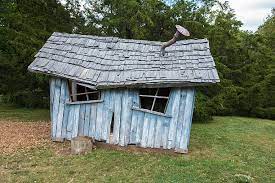In response to my last column on distinctive Tasmanianisms, the editor of this fine publication told me he remembers “cordial” as coming in both cans and bottles in his youth, and that it was fizzy. Only the branded stuff like Coke was referred to as anything but fizzy cordial.
When I first started collecting them, several locals volunteered “rum’n” as a Tasmanianism. I knew it was a contraction of “rum one”, and that it meant “odd person”, but I thought it was old English slang that you would only see in children’s books of the Enid Blyton era. Surely nobody still said it in real life? But my newly alerted ears began to notice the odd spoken “rum’n”, mainly from older folks, confirming it was indeed still current in Tasmania, even if its days were numbered.
But then it turned up in The Octopus and I, by young Tasmanian writer Erin Hortle, published only last year. Erin spelt it “rummin”, which suggests she may not have known its original derivation. But the fact that a young writer ascribes it to a youngish character suggests, pleasingly, that it’s alive and well in Tasmanian speech.
Other folks offered “yaffler”, meaning a talkative person. Soon I heard it myself, but not often. Pete Hay and my former ABC colleague Chris Nielsen, who both hail from The Coast, said that “yaffler” was still common up thataway.
“The Coast” itself is a doozy of a Tasmanianism. I haven’t yet heard a good explanation as to why, in a little island where nobody lives more than two hours drive from the sea, only the north-west seashore is known as THE coast!
Inevitably my attention was drawn to “nointer”. As with “yaffler”, I’d never heard the word before: two words unknown outside Tasmania – bingo! My first informant told me it meant glutton. He said it originated in the Great Tasmanian Pie-Eating Contest reputed to have taken place in Campbelltown in 1890-something, the winner of which was a big fella who consumed the unlikely quantity of ninety, or “nointy” pies!
Others quickly dismissed this as a furphy, saying that “nointer” means a brattish child, and in due course I heard one my workmates use it unselfconsciously in relation to, yes, a little brat. “He’s a real nointer, that one”, she said. The workmate in question was a Hobart girl, which put paid to the suggestion made by other readers that “nointer” was purely something that Coasters said.
One unarguable Tasmanianism is “shack” to refer to a beach house or weekender, although some locals did argue the toss: “Doesn’t everyone call them shacks?” No. In Tasmania “shack” denotes a holiday home, whatever its size or condition. Elsewhere in the country the term only applies to a smallish, dilapidated building which could serve as a getaway but only if you didn’t have a proper house to go to.
In the realm of the creepy-crawly I hit pay-dirt. I’d never heard of jackjumpers till I came to live in Tasmania, and to this day I wouldn’t know one if it jumped up and bit me, which by all accounts this horrid little critter is likely to do!
I understand it’s a type of ant, and that an “inchman” is what mainlanders would call a “bullant”. Those tiniest of all black ants I’m told are known as “pissants”, but I’m not sure my previous ignorance of this term isn’t due to my genteel upbringing, rather than to my non-Tasmanian birth.
I’m also informed that “cicada” isn’t used here. In Australia – now that’s a very Tasmanian thing to say! – a cicada is that noisy variety of cricket that chirrups away loudly with its hind legs on warm summer evenings. Here they’re just grasshoppers. Or so I’m told. Any argument?
Are there distinctive Tasmanian pronunciations? Some Tasmanians, I’m told, pronounce “trough” as “trow”, rhyming with “throw”. Not sure if it’s purely Tasmanian. I’m sure I’ve heard of it popping up elsewhere in the English-speaking world – a survival from an older English form.
Then there are those expressions where that refer to things only found in Tasmania: the pinkeye potato, leatherwood honey and Blunnies, the famous boots, for instance. Someone told me about the “chopping cabaret”, a traditional Tasmanian axeman’s competition but held in a hotel. Can anyone confirm that these still happen?
And talk about local. Any day now we’ll be seeing the return of “Bridgewater Jerry”, and I’m sure I won’t have to explain THAT one to you, dear reader.
This article was published in the New Norfolk and Derwent Valley News on 9.4.21




